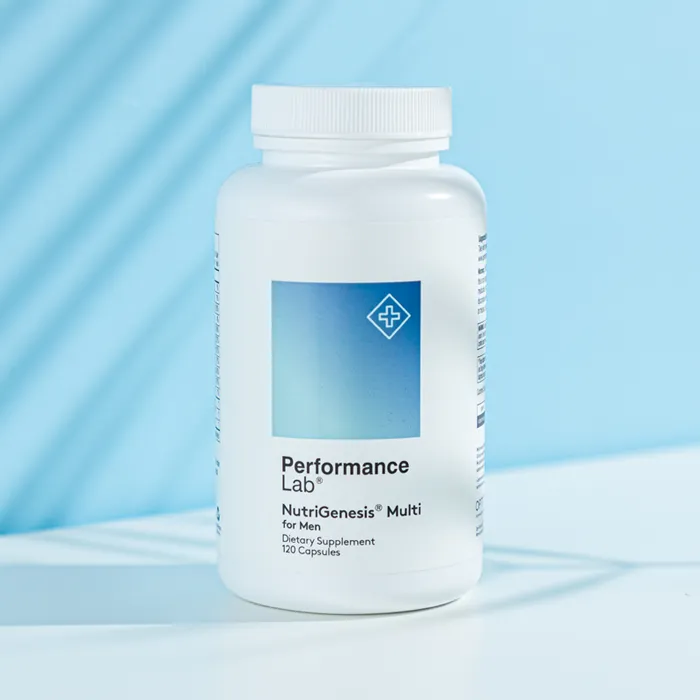We know that high sugar, low fiber diets are pretty bad for us.
But did you know these diets can negatively affect both our metabolic and sexual health.
As a result, many individuals are turning to inositol supplements.
Inositol, a compound often classified as a pseudovitamin, is crucial for optimal male health—supporting everything from glucose metabolism to sperm quality.
Key Takeaways
- Inositol refers to myo-inositol and D-chiro-inositol; both are involved in cell signaling and insulin sensitivity.
- For men, research explores roles in metabolic health, mood and stress support, and male fertility parameters.
- Typical supplemental intakes range from 500 mg to 4 g per day depending on goal and form; start low and build.
- It stacks well with foundational nutrition (B-vitamins, magnesium, zinc, omega-3s) and consistent training, sleep, and diet.
- Safety is generally good for healthy adults; consult your doctor if you use medications or have metabolic conditions.

High glucose competes with inositol for absorption, reducing its availability in the body. As a result, even the inositol we do consume may not be effectively utilized.(1)
This article explores the research-backed benefits of inositol for men and how supplementation can address these gaps, optimize your metabolism, sexual health, and may even improve some mental health conditions.
The Beginner’s Guide on Inositol and Male Health
When searching for “inositol and testosterone,” most of the top results will link you to studies on the effects of inositol on female health. However, inositol’s interactions with sex hormones, such as testosterone, are also pertinent to male health.
Obviously testosterone is the male sex hormone.
But to explain the biological importance of inositol, we need to start with the basics:
What Exactly is Inositol?

Often classified as a “B vitamin,” inositol is not officially a B vitamin… in fact, it’s not even a “vitamin,” which is why it’s sometimes referred to as a “pseudovitamin” or “vitamin-like.”
Inositol is a carbocyclic sugar that’s structurally similar to glucose, but it does not function as an energy source like glucose. Instead, its primary role is in supporting cellular processes, particularly brain signaling.
Found in various plants and animals, inositol comes in many forms, or isomers; however, the two most common are myo-inositol and D-chiro-inositol.(2)
While the brain relies on glucose for energy, inositol plays a crucial role in regulating brain signaling pathways, which contributes to its reputation as a “nootropic” (cognitive enhancer). However, inositol's role extends beyond just cognition, supporting other systems including sexual health.
How Does Inositol Work?
Inositol, though technically a carbohydrate, is often called the unofficial “vitamin B8” due to its essential roles in various biological processes.
Unlike most carbohydrates that primarily serve as fuel for ATP energy production, inositol directly supports several critical bodily functions.
Here are some of inositol’s key mechanisms:
PIP Synthesis
Inositol is a precursor for phosphatidylinositol polyphosphates (PIPs), which are essential for numerous cellular functions, including cell signaling and development.
Glucose Uptake
As a secondary messenger in insulin signaling, inositol helps regulate insulin activity and glucose uptake, which is crucial for maintaining balanced blood sugar levels.
Cell Membrane Formation
Inositol is necessary for the synthesis of cell membrane phospholipids, contributing to cell membrane integrity and permeability.
Neural Support
Beyond cell membrane formation, inositol may promote neurogenesis, the growth of new neurons, supporting brain health and cognitive function.
These functions highlight the broad benefits of inositol, such as improved brain health, energy, sexual health, and skin health. Additionally, some research shows inositol may help in reducing high blood pressure and improving cardiovascular health by reducing metabolic risk factors such as blood triglyceride levels and blood sugar. However, more research and is needed in this area.
Why Men Should Supplement Inositol

Oxidative stress and inflammation can significantly disrupt glucose metabolism, sperm quality, and male fertility—impacting virtually all other aspects of male health and performance. Left unchecked, these factors can severely impact male health on several measures.
This is why Supplementing with inositol, especially alongside antioxidants, has become an increasingly popular strategy in improving male health and fertility. Inositol’s insulin-sensitizing, anti-inflammatory, and antioxidant properties can help improve male sexual health and metabolism.
Recognizing Inositol Deficiency
Okay, so the science and underlying workings of inositol are interesting, but how do you know if you’re not getting enough inositol?
While the symptoms of deficiency are not conclusive, they may include:
- Poor Skin Health
- Insomnia
- Digestive Issues
- Mood Imbalance
- Low Energy Levels
- Cognitive Difficulties
- Fertility Difficulties
Again, the modern diet makes sustaining sufficient inositol levels difficult. Which is why taking an inositol-containing supplement may be a practical way to address these symptoms and support overall male health.
Shop Inositol Supplements For Men
Inositol Review: Benefits for Male Health

While nutrients like zinc, magnesium, and vitamin D tend to get more attention in the male health sphere than the likes of inositol. Inositol’s health benefits shouldn’t be overlooked:
- Sperm Quality – Inositol supplementation may improve sperm motility, concentration, and morphology, making it beneficial for men with sperm health issues.
- Male Fertility – A natural consequence of improved sperm quality is enhanced male fertility, one of the key reasons to supplement inositol.
- Mental Health – At therapeutic dosages, inositol may have an anxiolytic effect, reducing symptoms of anxiety and depression. Inositol may also help in reducing symptoms of anxiety disorders by modulating neurotransmitter function.
- Skin Health – Poor inositol levels are linked to skin issues. Supplementing with inositol can improve skin health and complexion, making it a valuable addition to skincare routines.
In certain clinical cases, taking high dosages of inositol may be recommended to combat more severe examples of, say, mood disorders or poor sperm quality. However, even a moderate daily dose, regardless of individual conditions, isn’t a bad idea.
What Does the Research Say on Inositol?

As with any nutrient, information on inositol is all over the place.
However, most studies focus on its role in sperm quality and male fertility. Additionally, there is emerging evidence on its potential to reduce the symptoms of depression, anxiety, and aid glycemic control.
All in all, compiled research suggests that inositol may:
1. Improve Sperm Quality in Men with Metabolic Syndrome
A prospective study investigated the impact of inositol supplementation on sperm motility in men with metabolic syndrome, a condition linked to cardiometabolic risk factors.
Researchers evaluated semen characteristics along with hormone and metabolic profiles before and after supplementation.
The results showed significant improvements in insulin sensitivity, testosterone levels, sperm concentration, motility, and morphology.
The study concluded that inositol, when combined with other vitamins and micronutrients, can be an effective therapy for metabolic and hormonal imbalances contributing to male infertility.(3)
2. Enhance Male Fertility
In randomized controlled trials in a clinical setting, researchers observed the effects of myo-inositol on sperm parameters such as motility, concentration, and fertility rate in men with oligoasthenospermia (low sperm count and motility).
The results demonstrated a notable increase in sperm motility and fertility rates, nearly doubling the chances of fertility in men who received myo-inositol compared to those who didn’t.
The study affirmed that myo-inositol is effective at improving sperm parameters and fertility potential.(4)
3. Reduce Depression Symptoms
A small 1995 study explored the effects of a high daily dose of inositol (12 g) on patients diagnosed with depression.
Using the Hamilton Depression Rating Scale (HDRS) to measure outcomes, researchers found that inositol significantly improved depression scores compared to placebo.
They proposed that inositol’s ability to function as a precursor for second messengers in neurotransmitter pathways might be the key to its antidepressant effects.(5)
However, replication of this study is necessary to verify the findings and establish its broader therapeutic potential.
4. Optimize Glycemic Control
In animal studies, researchers examined how inositol affects glucose metabolism in normal and type-2 diabetic rats.
The findings showed that inositol inhibited intestinal glucose absorption, increased muscle glucose uptake, and delayed gastric emptying.
Based on these results, the study suggested that myo-inositol could potentially serve as a dietary supplement to help regulate blood sugar and improve metabolic performance.(6)
Myo-Inositol vs. D-Chiro-Inositol: What’s the Difference?
Most of the research discussed so far focuses on myo-inositol, the form typically referred to when we mention "inositol." However, there’s another important isomer: D-chiro-inositol. These two forms are structurally similar but act as mirrored opposites, like the left and right hand.
In studies comparing myo-inositol and D-chiro-inositol, both have been shown to improve female sexual health and metabolism, but myo-inositol consistently provides greater metabolic benefits.(7)
This is especially evident in research showing that myo-inositol can enhance insulin sensitivity and reduce the risk of gestational diabetes, particularly in pregnant women at higher risk due to factors like obesity or polycystic ovary syndrome (PCOS). In these cases, myo-inositol is often paired with folic acid for optimal results.
For men, myo-inositol is also recommended for supporting overall health and improving fertility, thanks to its beneficial effects on sperm quality and hormone balance.
Look for NutriGenesis® Inositol
If you're concerned about whether your supplement contains myo-inositol or D-chiro-inositol, look no further.
NutriGenesis® Inositol delivers a patented form of inositol, enhanced with natural cofactors like probiotics, enzymes, fibers, and antioxidants to boost absorption and bioavailability.
As part of the total NutriGenesis® multivitamin package in Performance Lab® NutriGenesis® Multi for Men, NutriGenesis® Inositol+ works in synergy with other essential vitamins and minerals to support overall male health, ensuring your body gets the nutrients it needs to function optimally.
Learn more about NutriGenesis® here.
Best Inositol Supplement Source for Men: Performance Lab® NutriGenesis® Multi for Men

Performance Lab® NutriGenesis® Multi for Men is a clean, comprehensive multivitamin that delivers bioavailable, easy-to-absorb inositol along with other essential vitamins and minerals for male health and performance.
With natural cofactors to enhance nutrient absorption, NutriGenesis® ingredients outperform standard multivitamin formulas that rely on lower-quality, less effective compounds. This formula is designed to fill nutritional gaps, supporting overall male health, including testosterone production, neuromuscular balance, and cardiovascular health.
For a better understanding of how NutriGenesis® Multi for Men works, let’s take a closer look at the formula’s ingredients.
Key Ingredients Supporting Male Health
- Zinc: Supports testosterone synthesis and male fertility.(8)
- Magnesium: Crucial for energy metabolism, muscle function, and maintaining healthy testosterone levels.(9)
- Boron: Optimizes the body's use of testosterone, estrogen, and vitamin D.(10)
- Vitamin D: Boosts testosterone, particularly in men with limited sun exposure.(11)
- Vitamin K (K1 + K2): May improve testosterone levels and is concentrated in male reproductive tissues.(12)
The formula is encapsulated in natural, prebiotic-infused NutriCaps® made from fermented tapioca, ensuring a clean, additive-free supplement that’s safe for daily, long-term use.
Conclusion
For men, there are plenty reasons to supplement inositol.
Most notably to improve:
- sexual health and function
- mental health
- skin health
- metabolic health
However, inositol isn’t the only micronutrient worth considering when it comes to maximizing your masculine power.
Performance Lab® NutriGenesis® Multi for Men provides a comprehensive multivitamin formula that not only supports healthy inositol levels, but also delivers other essential nutrients vital for overall health and performance.
By taking this daily multivitamin, you'll build a strong nutritional foundation, addressing micronutrient deficiencies that become more common with age. For men aiming to enhance their vitality and well-being, NutriGenesis® Multi for Men is an ideal supplement choice.
References
- Lepore E, Lauretta R, Bianchini M, Mormando M, Di Lorenzo C, Unfer V. Inositols Depletion and Resistance: Principal Mechanisms and Therapeutic Strategies. Int J Mol Sci. 2021 Jun 24;22(13):6796. doi: 10.3390/ijms22136796. PMID: 34202683; PMCID: PMC8268915.
- Chhetri DR. Myo-Inositol and Its Derivatives: Their Emerging Role in the Treatment of Human Diseases. Front Pharmacol. 2019 Oct 11;10:1172. doi: 10.3389/fphar.2019.01172. PMID: 31680956; PMCID: PMC6798087.
- Oliva MM et al. Effect of Myoinositol and Antioxidants on Sperm Quality in Men with Metabolic Syndrome. Int J Endocrinol. 2016; 2016: 1674950.
- Ghasemi A, Amjadi F, Masoumeh Ghazi Mirsaeed S, Mohammad Beigi R, Ghasemi S, Moradi Y, Tahereh Ghazi Mirsaeed S. The effect of Myo-inositol on sperm parameters and pregnancy rate in oligoasthenospermic men treated with IUI: A randomized clinical trial. Int J Reprod Biomed. 2019 Nov 7;17(10):749-756. doi: 10.18502/ijrm.v17i10.5296. PMID: 31807723; PMCID: PMC6844281.
- Levine J et al. Double-blind, controlled trial of inositol treatment of depression. Am J Psychiatry. 1995 May; 152(5): 792-4.
- Chukwuma CI et al. Myo-inositol inhibits intestinal glucose absorption and promotes muscle glucose uptake: a dual approach study. J Physiol Biochem. 2016 Dec; 72(4): 791-801.
- Pizzo A et al. Comparison between effects of myo-inositol and D-chiro-inositol on ovarian function and metabolic factors in women with PCOS. Gynecol Endocrinol. 2014 Mar; 30(3): 205-8.
- Prasad AS et al. Zinc status and serum testosterone levels of healthy adults. Nutrition 1996 May; 12(5): 344-8.
- Cinar V et al. Effects of magnesium supplementation on testosterone levels of athletes and sedentary subjects at rest and after exhaustion. Biol Trace Elem Res. 2011 Apr; 140(1): 18-23.
- Pizzorno L. Nothing Boring About Boron. Integr Med (Encinitas). 2015 Aug; 14(4): 35-48.
- Pilz S et al. Effect of vitamin D supplementation on testosterone levels in men. Horm Metab Res. 2011 Mar; 43(3): 223-5.
- Takumi N et al. Dietary vitamin K alleviates the reduction in testosterone production induced by lipopolysaccharide administration in rat testis. Food Funct. 2011 Jul; 2(7): 406-11.
















